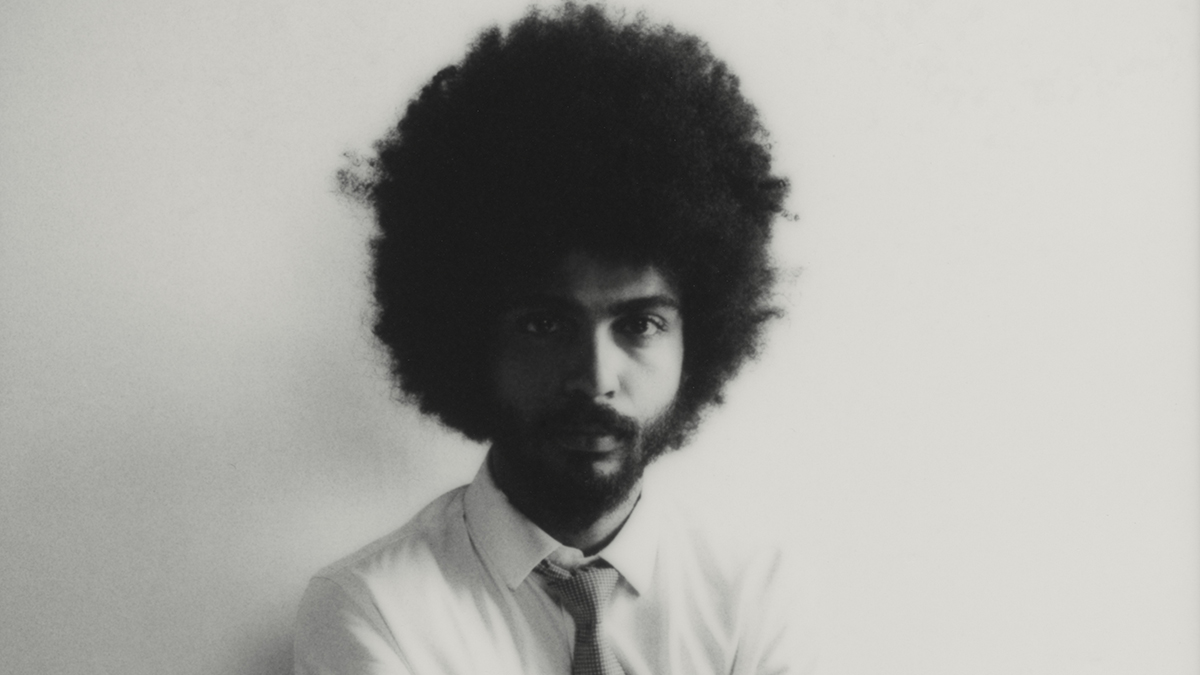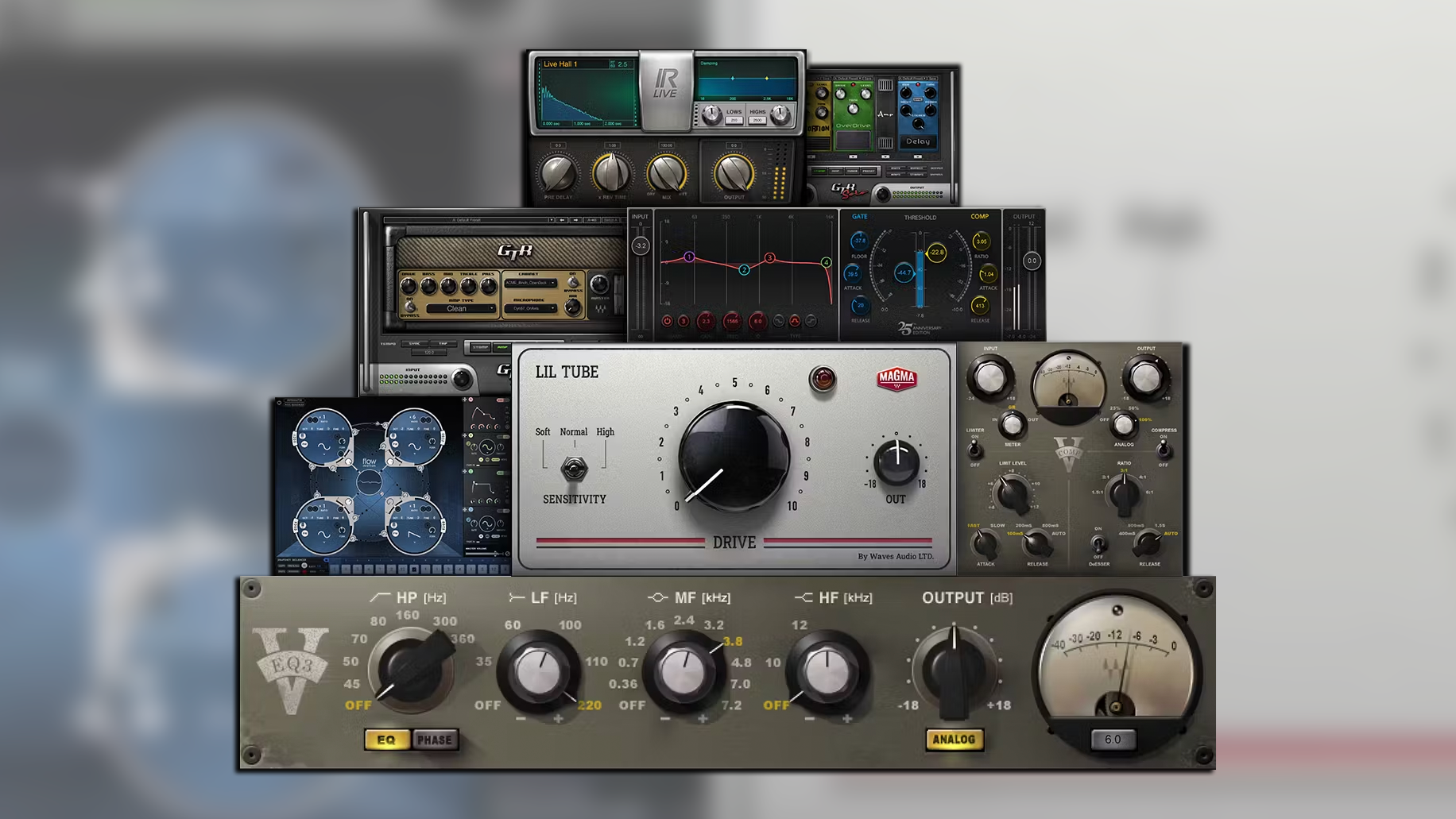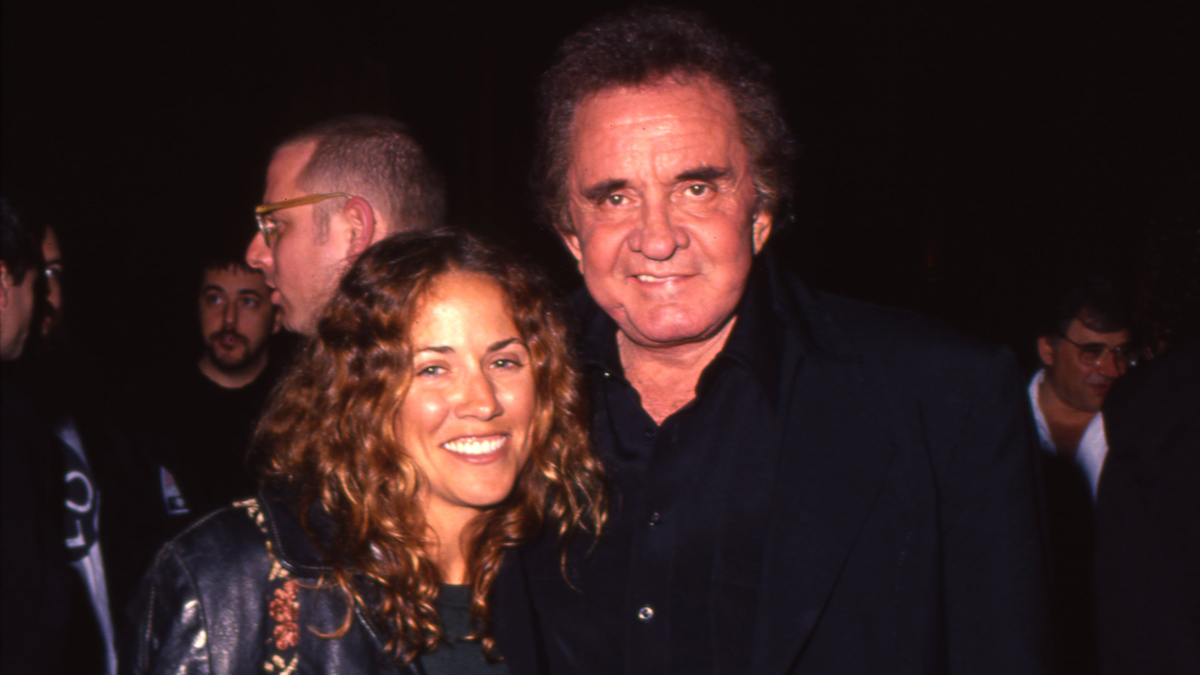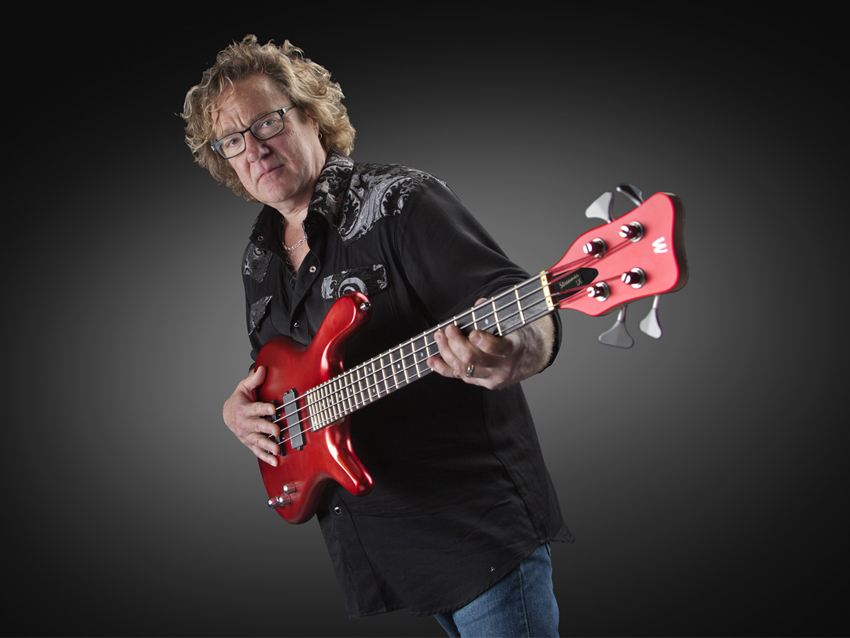
Introduction
On his recently released sixth solo album, The Book Of Lies, bass master Stu Hamm tried something new: he decided to relax.
“I’m a lot easier on myself as I get older - I’m not so obsessed with string noise and fret buzz,” he says. “Coming up in the studio with guys like Vai and Satriani, I used to be so worried about precision. Now I’m more interested in spirit and mood and capturing great performances.”
He pauses, then adds with a laugh, “Besides, I don’t think anybody hears mistakes on records anyway. Musicians might spot them from time to time, but your average listeners don’t. They just want good songs.”
For The Book Of Lies, Hamm surrounded himself with a sterling group of players, including drummer Chester Thompson, guitarist Carl Verheyen and bassist Jason Harrison Smith, but for the seven-piece Petite Suite For Solo Bass, as the title suggests, he flew unaccompanied.
“It occurred to me that nobody’s written any material for the instrument, so I decided to create a body of material for students to work on,” Hamm says. “People can use these tracks as audition or performance pieces. Also, subliminally, each piece is written using a different technique for solo bass. From chords to arpeggios to tapping and slapping, there’s a lot to chew on.”
Lest anyone think that the album title carries theological or scientific connotations, Hamm quickly points out that it’s all an insider’s joke among musicians. “The Book Of Lies is what we call a tour itinerary,” he says. “If you want to know how far it is from the hotel to the gig, look in the itinerary and it’ll usually be wrong. It’ll say two miles when it’s really four. Or if you want to know the nearest Japanese restaurant from your hotel - look in the Book Of Lies and it’ll have you at a Mexican place. You learn this the hard way, believe me.”
Stu Hamm’s The Book Of Lies can be ordered at CDBaby and iTunes. For tour dates, visit Hamm’s official website.
On the following pages, Hamm runs down his top five tips for bassists.
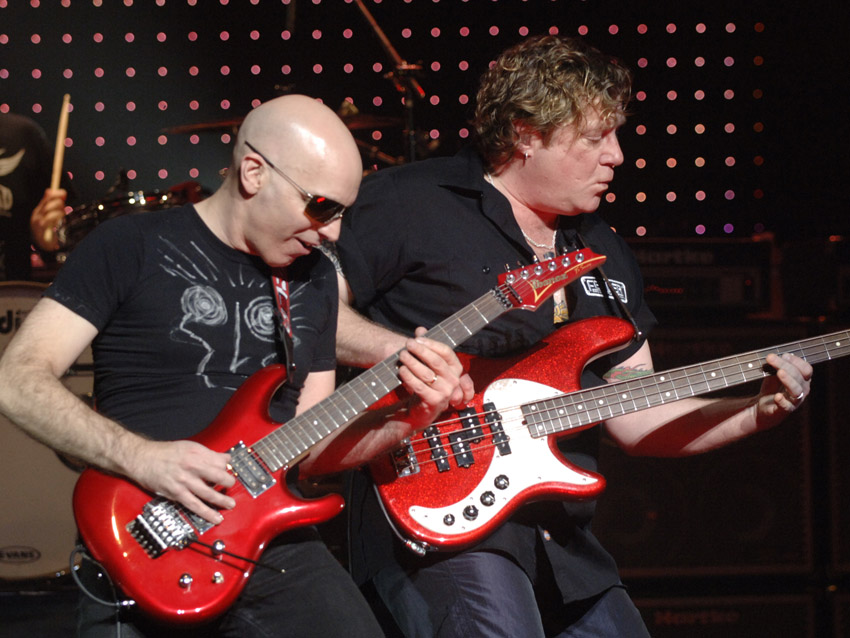
Develop a good warm-up routine
“Do anything you can to limber up your fingers, hands and body. Ideally, you want to develop a routine that you can use your whole life. I started doing a series of exercises that evolved over the years, and I sort of trained my body to get used to doing it.
“As you get on in years, it’s a real drag to go on stage cold. The times when I play the best are when I’ve taken the time to warm up and I’ve done some scales for 15, 20 minutes. You want to feel the strings vibrating and experience a real consistency of attack.
“If you were a pitcher, you wouldn’t go out and start throwing fastballs. Your accuracy would be all over the place, and your arm would give out in no time. Likewise, you can’t go on stage cold and expect to have it all together. Everything about your playing will be off; plus, your hands will cramp up. So take your time, start out slowly and work up to speed. Your hands will do what they need to if you just treat 'em right.”
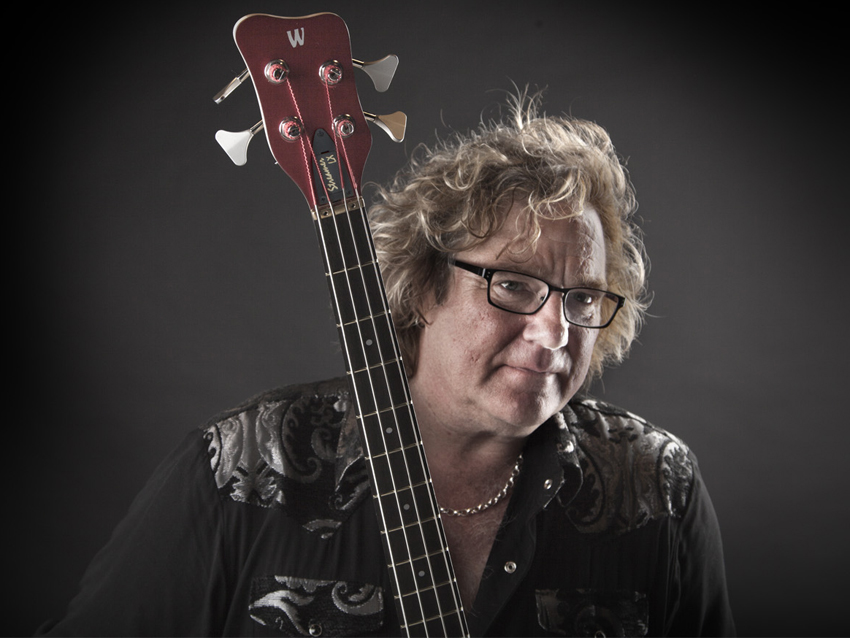
Do yoga
“Get to know your body, and become aware of the physical aspects of playing bass. And another thing: do yoga. Seriously, it’s great in so many ways, particularly for playing music.
“Somebody asked me some years back, ‘If you could go back in time and tell yourself something at an earlier age, what would it be?’ I said, ‘I would have told myself to do yoga.’ I’ve been through a couple of physical ailments, and in the course of getting them straightened out, I got into alternative medicine, along with all the hippie-dippy stuff like breathing and yoga.
“When you’re 19 or 20, you probably think it’s cool to pick up your giant speaker cabinet and carry it up the stairs. Thing is, it’s very easy to injure yourself doing stuff like that, and then you’re out of commission. So, it’s important to develop good habits early - you’ll save yourself a lot of misery later.
“Yoga ties in with breathing. I used to get tense when I played - I’d hold my breath when playing difficult passages. I wrote a song on my first album called Simple Dreams as something of a breathing pattern. I’d breath in for two bars and breathe out for two bars. You think that breathing is the most natural thing in the world, but it’s not.
“I’d like to give a big plug to a book called Injury Prevention And Pain Management For Bass Players, written by a friend of mine, Randall Kertz. He’s a bass player and a chiropractor. It’s something I teach out of often.”
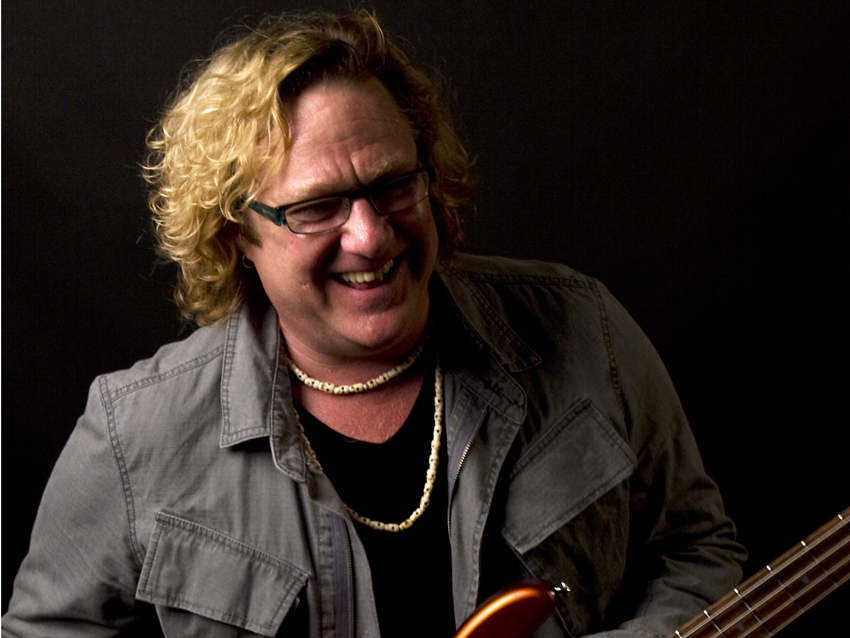
Learn to read your ass off
“Why not? Seriously, why wouldn’t you? What do you have to gain by not learning to read? It’s wonderful to use your ear. I would tell that to any type of musician, no matter what you play.
“Think about it: if you were hoping to be an architect, wouldn’t you want to know everything about buildings? And obviously, if you were studying to be a doctor, you’d have to know everything about the human body. Same thing with playing music - know all you can. There’s no upside to being uninformed.
“Written pieces of music are how musicians communicated with one another for hundreds of years. Instead of giving verbal and maybe confusing instructions to players, you can just write it down, or you can learn to use Sibelius and print it up. There you go - hand the music to someone. Writing music out allows you to communicate with musicians who speak other languages, too - there are many advantages.
“It’s not going to hurt your playing in any way. It’ll only help you to easily convey your musical ideas, and it might even open up new avenues of work. You can go to sessions and read what the composer wrote out.”
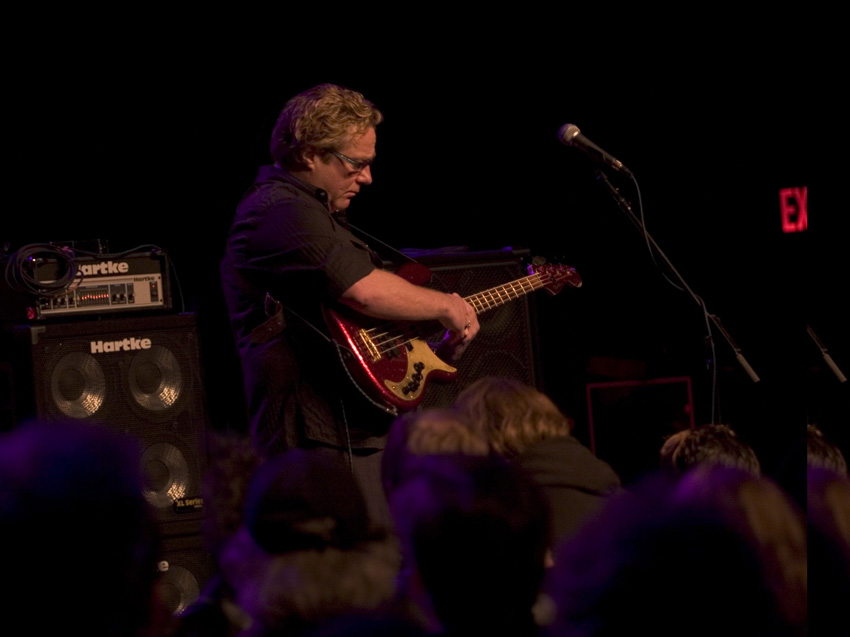
Live outside of the box
“Learning and playing music is an endless journey. You never truly get 'it', and if you think you have, then you might as well move on to the next thing. Learn Latin or something. Above all, keep an open mind and be ready for challenges.
“I love stuff that challenges me and moves me in new ways. You don’t want to get pigeonholed as a certain type of player or to be known for doing only one thing. If somebody asks if you can sing - ‘Sure, I can sing.’ Can you play with a pick? ‘Of course I can play with a pick.’ You fake your way through it at the audition, and then when you get the gig, you go home and become an expert.”

Be on time and be sober
“So much of this business is about being dependable, particularly if you’re a bass player. Your job is to be ready to go, no questions asked. I couldn’t imagine walking into a session not knowing the songs better than the people who wrote them. That’s what people want a bass player for.
“Everybody in the band is waiting for the bassist to lead the way, because the bass is what unites the harmony and the melody. So, you’ve got to have your game ready, and the first step is just showing up at all. If you’re a flake and don’t get back to people, or if you show up late and everybody is waiting for you, that’ll get around fast. The phone will stop ringing, the emails will vanish – people don’t have time for somebody who isn’t dependable.
“And, of course, be sober. There are stoner bands that drink and get high, and for them, it’s part of the social aspect of hanging together. But if you’re a bass player working in somebody else’s band, you’ve got to learn how to stay in control. Everybody likes to kick back now and then, and if your way of doing that is drinking, that’s up to you. But you can’t party when it’s work time. That’s a quick ticket to not working any more.”
Joe is a freelance journalist who has, over the past few decades, interviewed hundreds of guitarists for Guitar World, Guitar Player, MusicRadar and Classic Rock. He is also a former editor of Guitar World, contributing writer for Guitar Aficionado and VP of A&R for Island Records. He’s an enthusiastic guitarist, but he’s nowhere near the likes of the people he interviews. Surprisingly, his skills are more suited to the drums. If you need a drummer for your Beatles tribute band, look him up.
Carlos Santana collapses and then cancels second show “out of an abundance of caution”
“It is ingrained with my artwork, an art piece that I had done years ago called Sunburst”: Serj Tankian and the Gibson Custom Shop team up for limited edition signature Foundations Les Paul Modern
Carlos Santana collapses and then cancels second show “out of an abundance of caution”
“It is ingrained with my artwork, an art piece that I had done years ago called Sunburst”: Serj Tankian and the Gibson Custom Shop team up for limited edition signature Foundations Les Paul Modern





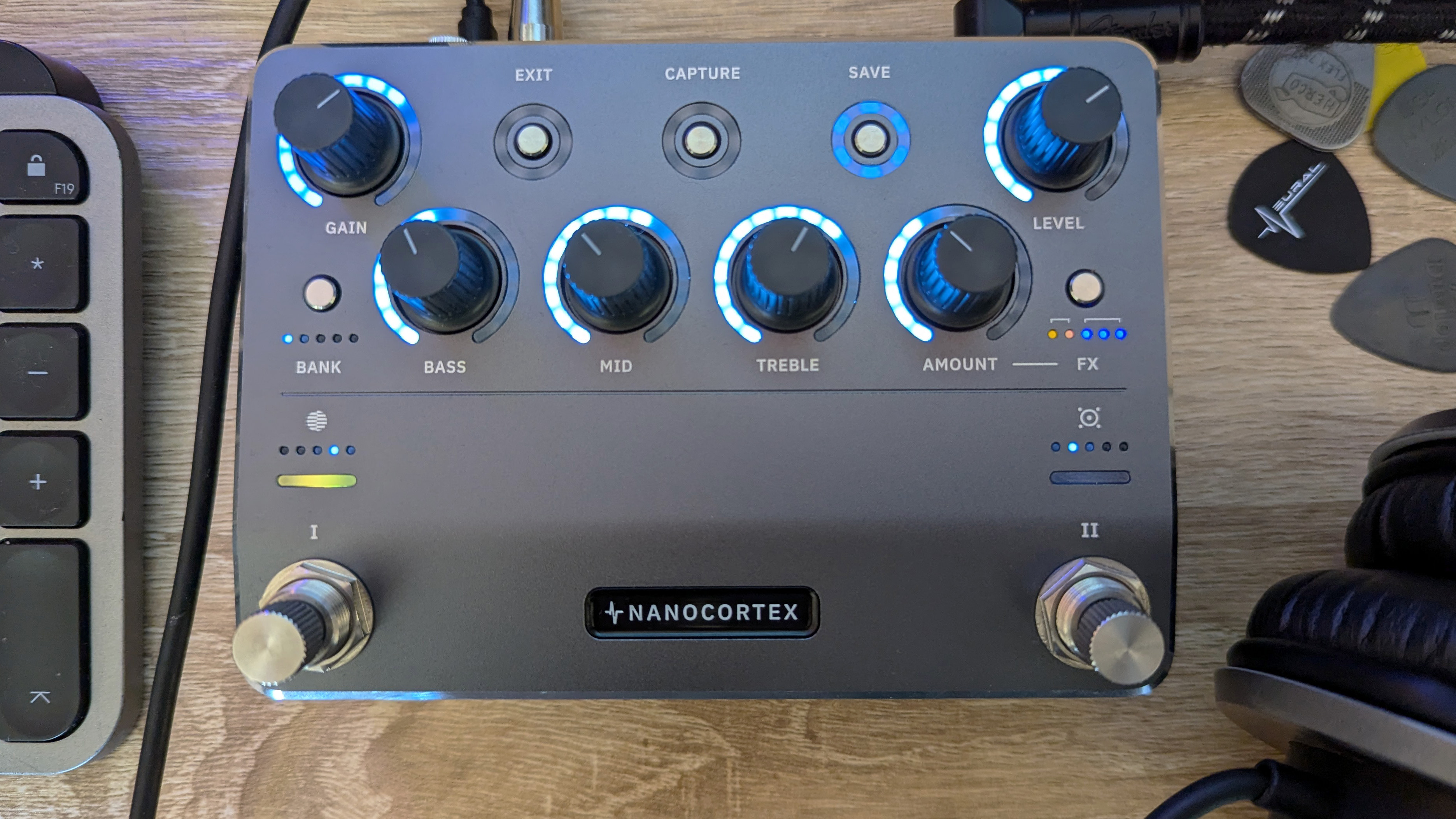
![Gretsch Limited Edition Paisley Penguin [left] and Honey Dipper Resonator: the Penguin dresses the famous singlecut in gold sparkle with a Paisley Pattern graphic, while the 99 per cent aluminium Honey Dipper makes a welcome return to the lineup.](https://cdn.mos.cms.futurecdn.net/BgZycMYFMAgTErT4DdsgbG.jpg)

